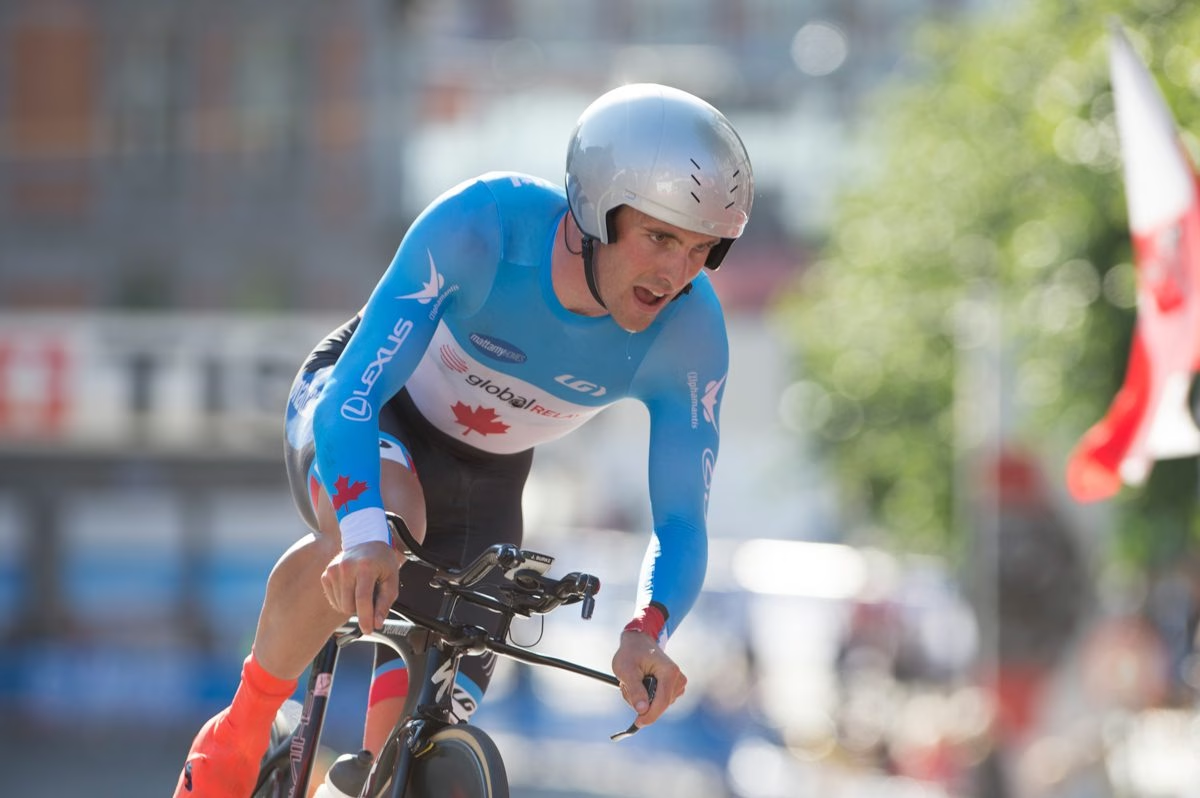Canadian Jack Burke broke a five-year-old Strava KOM on the tough Mortirolo climb in Italy. The previous record holder was none other than Tour de France and Giro d’Italia winner Vincenzo Nibali. Burke, 29, born in Toronto, bested the Italian’s KOM by a minute. On his Strava post, he said he hoped the record would get him a job on the WorldTour. “I just want a chance at the WT. Anyone, anywhere, anytime. I’ll do whatever you want, I just want a chance against the best guys,” it read. “Pogi, I’m coming for your Madone.”
Burke currently rides for the Club team Above & Beyond Cancer Cycling p/b Bike World but has previously ridden for several Continental teams, including Leopard Pro Cycling, Jelly Belly p/b Maxxis, Aevolo, and H&R Block Pro Cycling. His biggest win was winning Stage 2 of the 2018 Tour de Beauce.
The worst day of his life
His career, however, has not been without controversy. Burke was initially charged with doping after testing positive for a trace amount of hydrochlorothiazide (HCTZ), a banned substance, following a urine sample he provided after winning Stage 3 of the 2013 Tour de l’Abitibi. Despite the positive test, Burke’s case was overturned twice. The first acquittal came in September 2013 before the Sport Dispute Resolution Centre of Canada (SDRCC), but the UCI appealed the decision to the Court of Arbitration for Sport (CAS), which also ruled in Burke’s favour in July 2014.
International headlines
At the time of the test, Burke was wearing the leader’s jersey after completing a time trial. The lab result, showing a minuscule amount of HCTZ—less than one billionth of a gram—was detected by the WADA-approved INRS lab near Montreal, a facility capable of identifying such small quantities. Burke’s defence suggested the contamination may have been due to unintentional ingestion of contaminated water from the town of Malartic, where the race took place. Despite being a junior athlete, Burke’s legal battle involved top experts in sports law and doping disputes, and his case attracted attention due to its association with high-profile names in international cycling at the time.
The wrong water was to blame
Running late before the race, Burke filled his water bottles in Malartic at a sports complex rather than Rouyn-Noranda, unaware the town’s water—drawn from wells in an area impacted by mining, a golf course, and limited water treatment—contained trace pharmaceuticals, including…
Click Here to Read the Full Original Article at Canadian Cycling Magazine…

